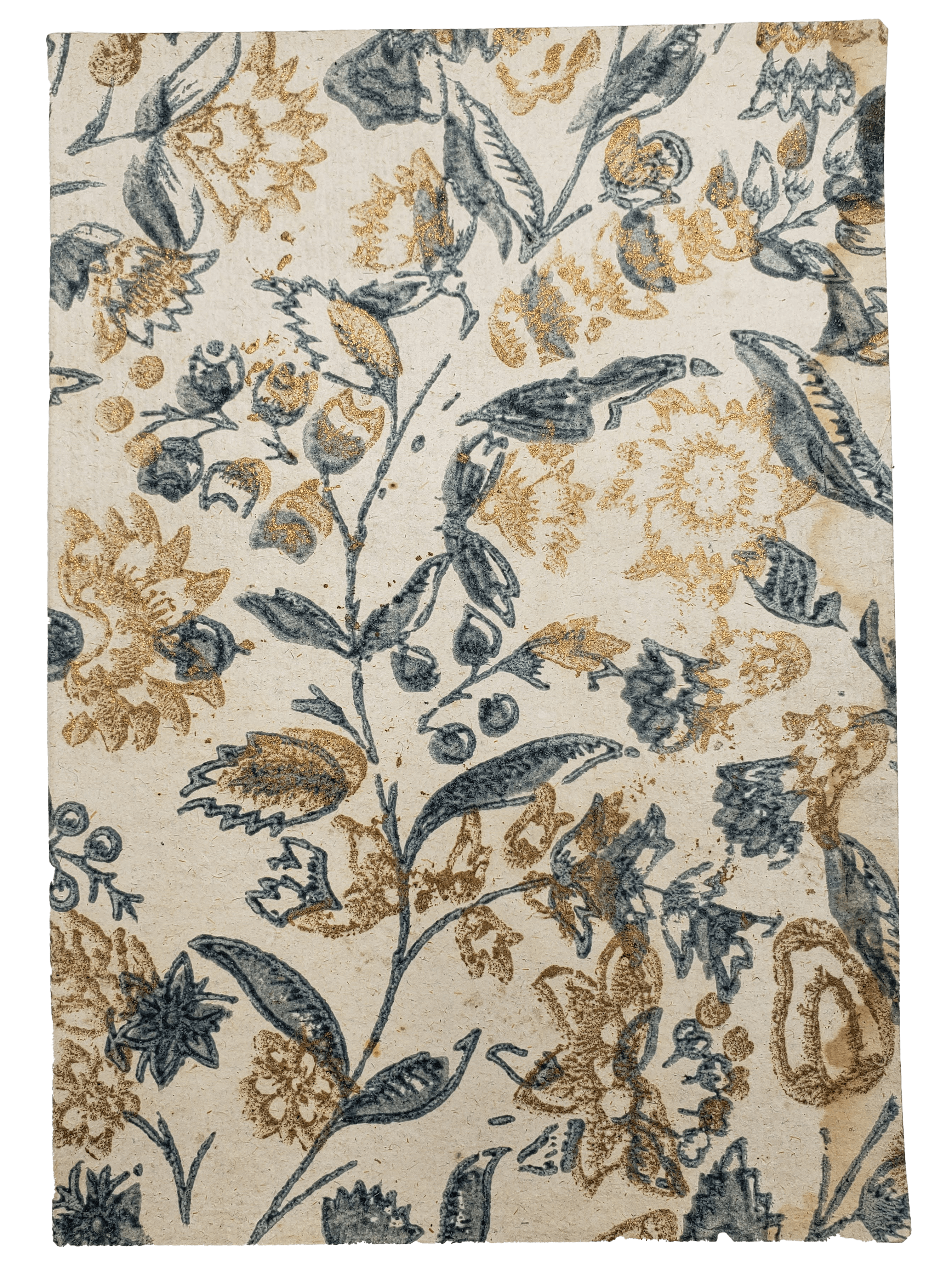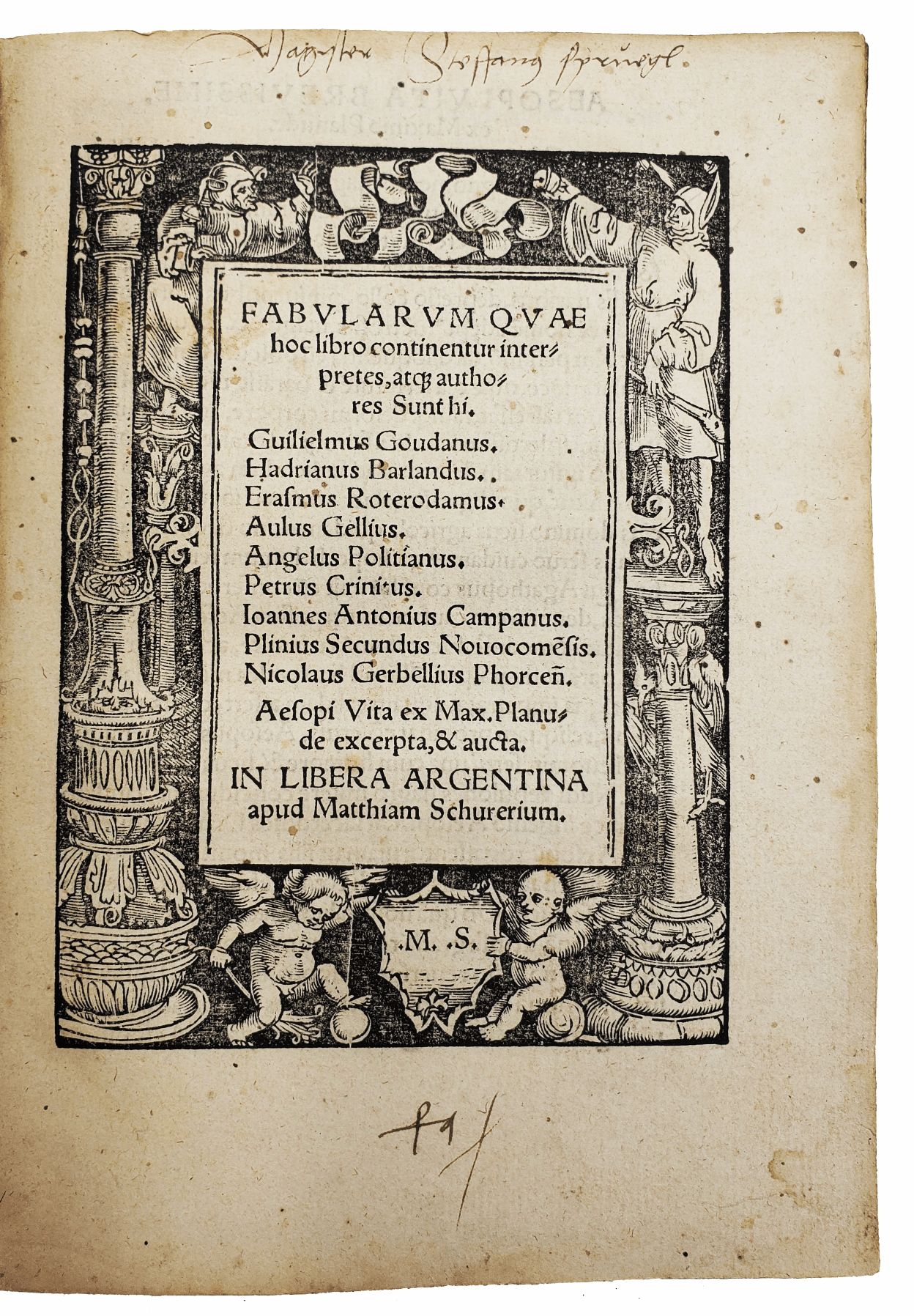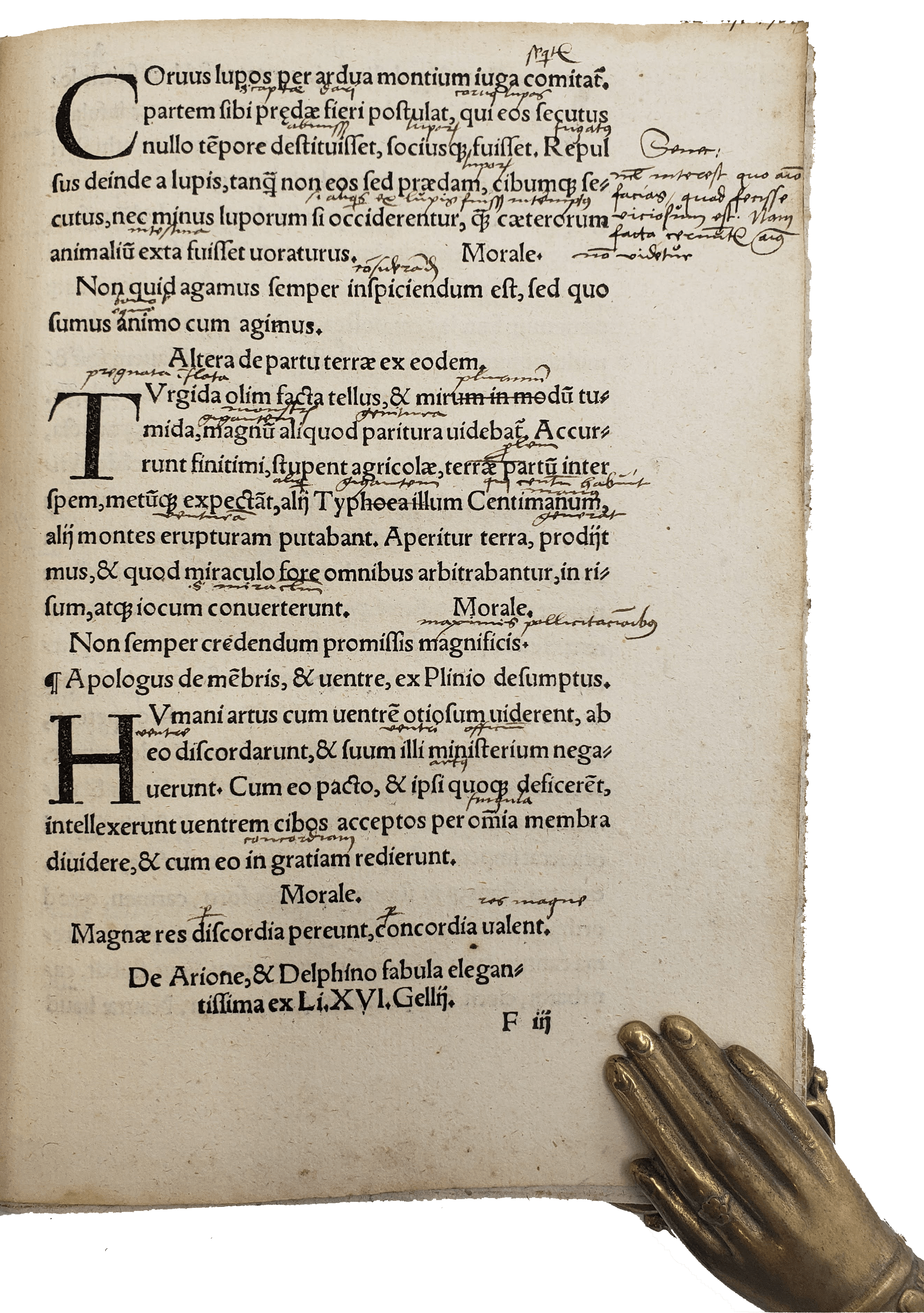AESOP et al.
EXTENSIVELY ANNOTATED
Fabularum.
[Strasbourg, Matthias Schure, October 1518].£5,750.00
4to. ff. [38]. Roman letter. Title within charming, white-on-black woodcut border with two Fools supporting a scroll and putti, full-page woodcut arms of Matthias Schurer to last verso. Slight browning. A very good, wide-margined copy in modern block-printed paper, contemporary ms ‘Magister Steffanus Spruegl’ and pentrial to title, extensive ms annotations, in his hand, occasionally just trimmed, mostly in Latin, occasional German.
A charmingly-printed, scarce early edition, intended as a textbook, of ancient Latin fables by Aesop, Aulus Gellius, and Pliny, adapted and edited by major humanists such as Erasmus, Politianus, and Crinitus. Short fables were among the fundamental instruments for the teaching and learning of Latin and Greek by humanist educators and scholars. Erasmus considered Aesop’s fables essential as ‘primers’, ‘exercises for composition’, and ‘moral training’ (Reiger, p.52), and was a great promoter of Aesop in the C16. The edition presents each fable plainly and simply, with generous interlinear blank space for annotations.
This copy was carefully annotated by a contemporary student, who signed himself Steffanus Spreugel, in a Germanic cursive hand. A Stefanus Sprugel matriculated at the University of Vienna in 1500, and by 1518 would have been indeed a ‘magister’; he was later ‘Decanus’ of the Arts Faculty. The NL of Austria holds a ms ‘Annotationes in Lactantium De opificio Dei’ (Codex Vindobonensis Palatinus 11726) by (arguably the same) Stefanus Sprugel. His title as well as the kind of annotations, with references to Plato, suggests that these were notes for teaching. He employs the usual humanist method of interlinear paraphrase or translation, adding marginal glosses, apparently not taken from printed sources, on the moral (beginning with ‘recto sit’, i.e., it is proper or morally correct) of several fables. Among the authorities mentions in the glosses are Pliny, Socrates, Horace, ‘De Re rustica’, Cicero, Cato, and Boethius. A very interesting copy.
Princeton, Folger, and Illinois copies in the US. USTC 657144; VD16 A 460. Die Matrikel der Universität Wien, vol.II/3 (1962). W. Goth Reiger, ‘Erasmus and Aesop’, Erasmus Studies 39 (2019), 51-74




